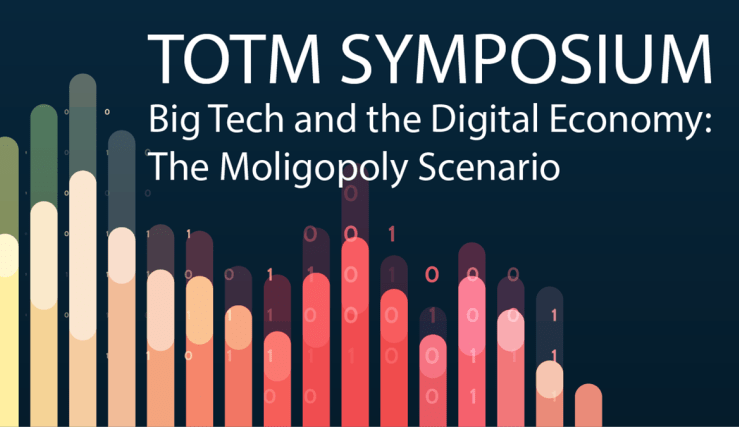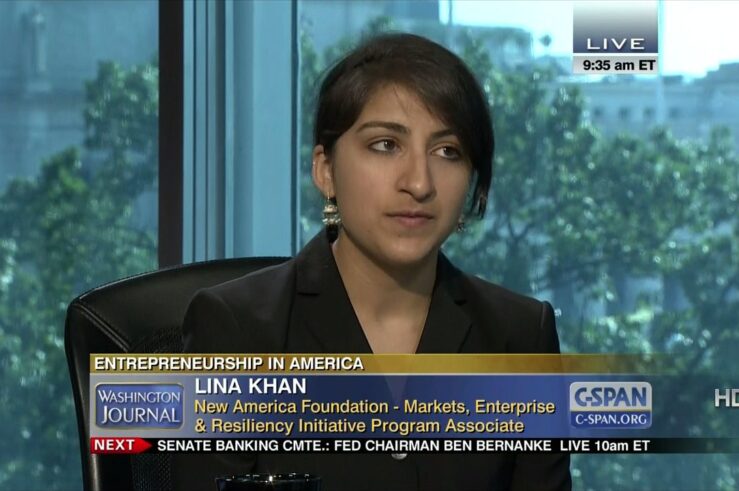Showing archive for: “Vertical Restraints & Self-Preferencing”
Breaking Down the American Choice and Innovation Online Act
The American Choice and Innovation Online Act (previously called the Platform Anti-Monopoly Act), introduced earlier this summer by U.S. Rep. David Cicilline (D-R.I.), would significantly change the nature of digital platforms and, with them, the internet itself. Taken together, the bill’s provisions would turn platforms into passive intermediaries, undermining many of the features that make ... Breaking Down the American Choice and Innovation Online Act
How US and EU Competition Law Differ
U.S. and European competition laws diverge in numerous ways that have important real-world effects. Understanding these differences is vital, particularly as lawmakers in the United States, and the rest of the world, consider adopting a more “European” approach to competition. In broad terms, the European approach is more centralized and political. The European Commission’s Directorate ... How US and EU Competition Law Differ
Antitrust Statutorification
A lot of water has gone under the bridge since my book was published last year. To close this symposium, I thought I would discuss the new phase of antirust statutorification taking place before our eyes. In the United States, Congress is working on five antitrust bills that propose to subject platforms to stringent obligations, ... Antitrust Statutorification
Going Back to Antitrust Basics
Advocates of legislative action to “reform” antitrust law have already pointed to the U.S. District Court for the District of Columbia’s dismissal of the state attorneys general’s case and the “conditional” dismissal of the Federal Trade Commission’s case against Facebook as evidence that federal antitrust case law is lax and demands correction. In fact, the ... Going Back to Antitrust Basics
The Virtues and Pitfalls of Economic Models
Interrogations concerning the role that economic theory should play in policy decisions are nothing new. Milton Friedman famously drew a distinction between “positive” and “normative” economics, notably arguing that theoretical models were valuable, despite their unrealistic assumptions. Kenneth Arrow and Gerard Debreu’s highly theoretical work on General Equilibrium Theory is widely acknowledged as one of ... The Virtues and Pitfalls of Economic Models
What Lina Khan’s appointment means for the House antitrust bills
Her appointment also comes as House Democrats are preparing to mark up five bills designed to regulate Big Tech and, in the process, vastly expand the FTC’s powers. This expansion may combine with Khan’s appointment in ways that lawmakers considering the bills have not yet considered. This is a critical time for the FTC. It ... What Lina Khan’s appointment means for the House antitrust bills
The Supreme Court Misses the Big Consumer Welfare Picture in NCAA v. Alston
In its June 21 opinion in NCAA v. Alston, a unanimous U.S. Supreme Court affirmed the 9th U.S. Circuit Court of Appeals and thereby upheld a district court injunction finding unlawful certain National Collegiate Athletic Association (NCAA) rules limiting the education-related benefits schools may make available to student athletes. The decision will come as no ... The Supreme Court Misses the Big Consumer Welfare Picture in NCAA v. Alston
Breaking Down House Democrats’ Forthcoming Competition Bills
Democratic leadership of the House Judiciary Committee have leaked the approach they plan to take to revise U.S. antitrust law and enforcement, with a particular focus on digital platforms. Broadly speaking, the bills would: raise fees for larger mergers and increase appropriations to the FTC and DOJ; require data portability and interoperability; declare that large ... Breaking Down House Democrats’ Forthcoming Competition Bills
Bad Blood at the FTC
John Carreyrou’s marvelous book Bad Blood chronicles the rise and fall of Theranos, the one-time Silicon Valley darling that was revealed to be a house of cards.[1] Theranos’s Svengali-like founder, Elizabeth Holmes, convinced scores of savvy business people (mainly older men) that her company was developing a machine that could detect all manner of maladies from ... Bad Blood at the FTC
European Commission Objection to App Store Rules Lack Empirical Support
The European Commission recently issued a formal Statement of Objections (SO) in which it charges Apple with antitrust breach. In a nutshell, the commission argues that Apple prevents app developers—in this case, Spotify—from using alternative in-app purchase systems (IAPs) other than Apple’s own, or steering them towards other, cheaper payment methods on another site. This, ... European Commission Objection to App Store Rules Lack Empirical Support
Antitrust Lessons from AT&T’s M&A Fiasco
The chorus of condemnation continued with vigor even after the DOJ’s loss in court and AT&T’s consummation of the transaction. With AT&T’s May 17 announcement that it will unwind the two-year-old acquisition and therefore abandon its strategy to integrate content and distribution, it is clear these predictions of impending market dominance were unfounded. This widely ... Antitrust Lessons from AT&T’s M&A Fiasco
The Digital Markets Act Shouldn’t Mandate Radical Interoperability
Despite calls from some NGOs to mandate radical interoperability, the EU’s draft Digital Markets Act (DMA) adopted a more measured approach, requiring full interoperability only in “ancillary” services like identification or payment systems. There remains the possibility, however, that the DMA proposal will be amended to include stronger interoperability mandates, or that such amendments will ... The Digital Markets Act Shouldn’t Mandate Radical Interoperability













